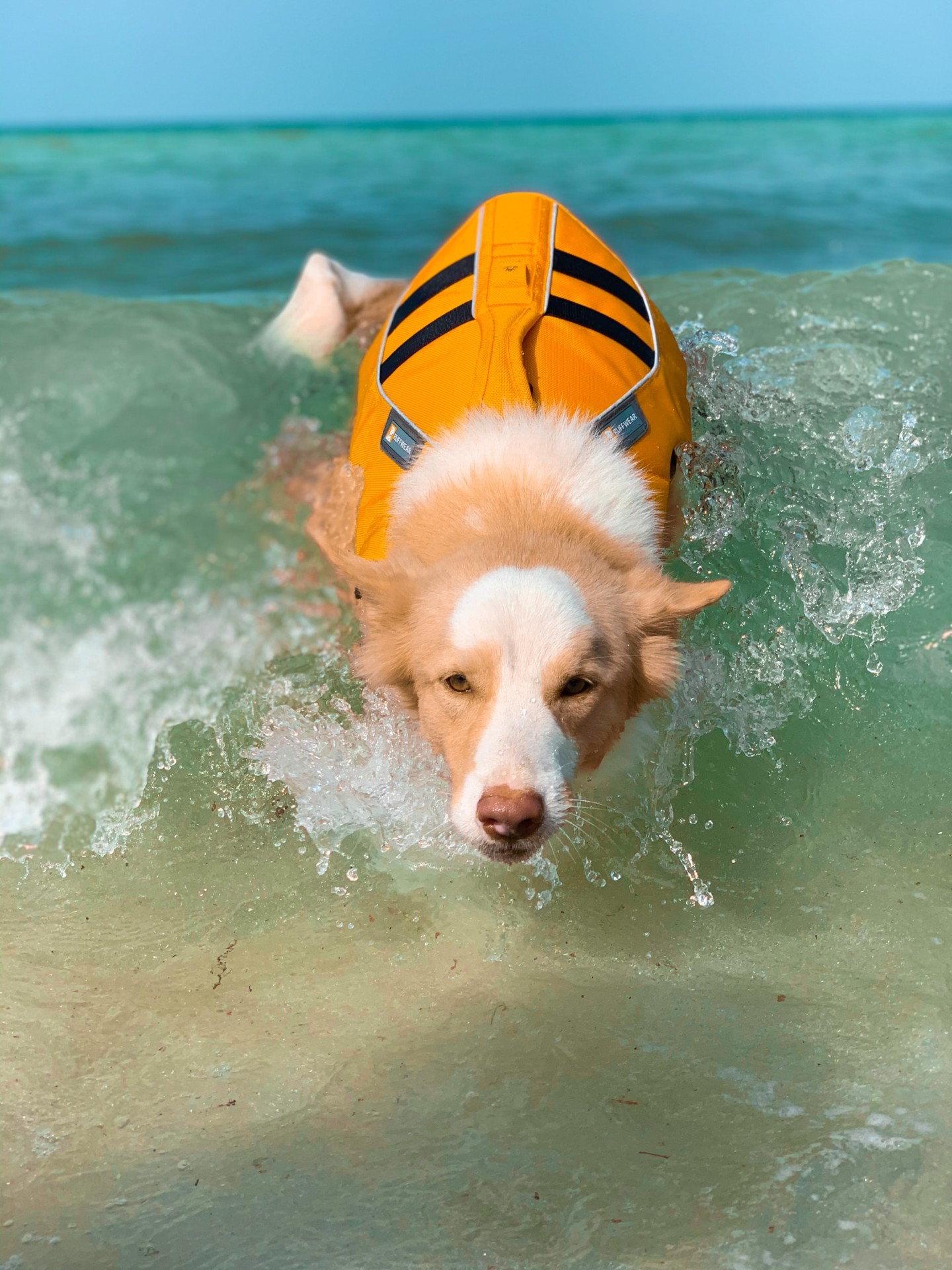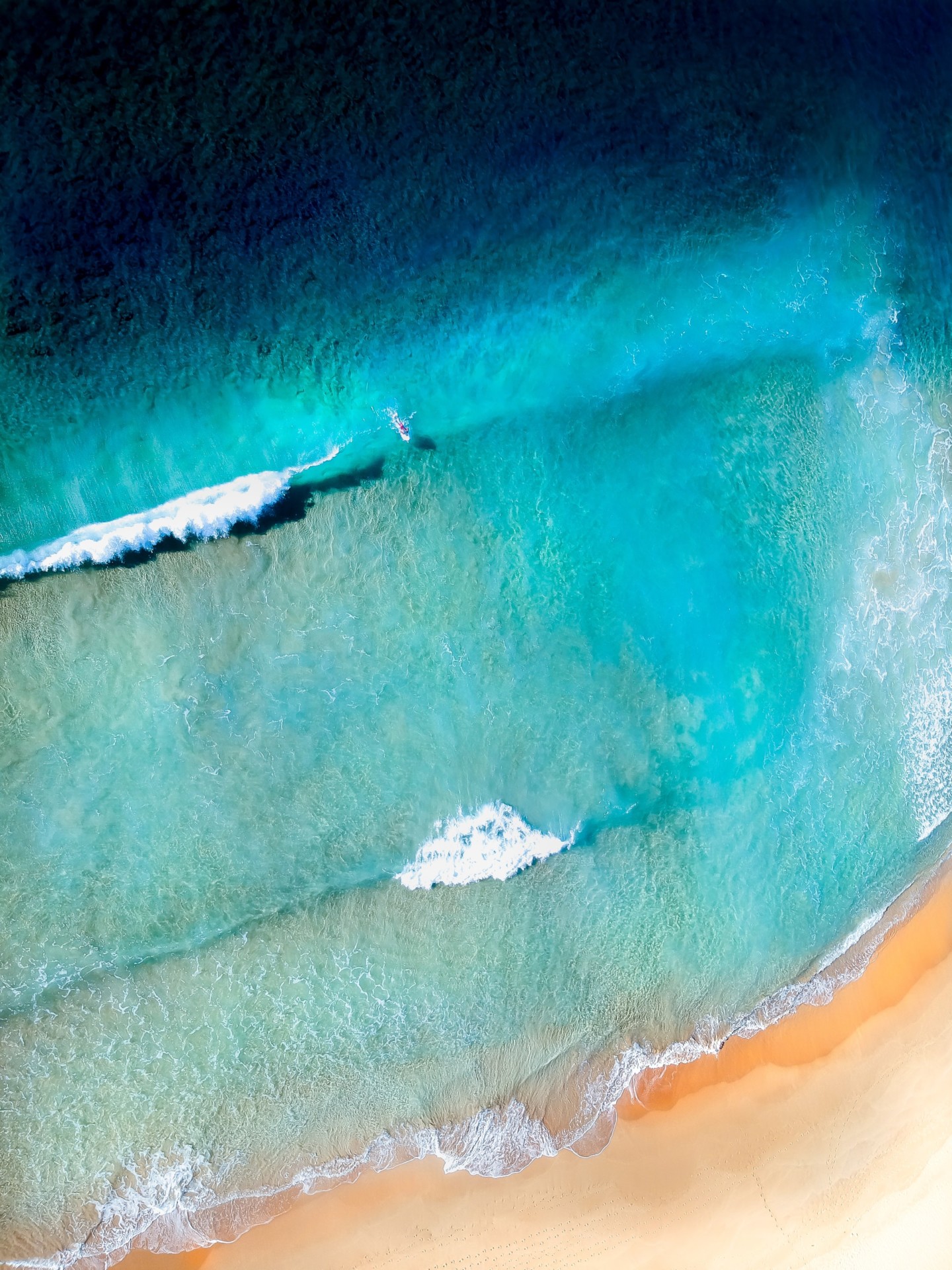Tattoos and surf culture somehow seem like they go hand in hand, just the same as surf and skate culture seem to be part of the same rebel group.
This brings up the question: can you go surfing with a new tattoo?
Getting into the ocean with a new tattoo is a terrible idea.
A tattoo is an open wound and should be completely healed before getting it wet.
Furthermore, the salt and bacteria in the ocean are an added negative when it comes to preserving the ink and aiding in recovery.
If you have a new tattoo or are considering getting one, the following article will give you all the information you need before getting back out and shredding up some waves.
- What Happens if You Get Salt Water on a New Tattoo?
- Isn’t Salt Water Healing and a Disinfectant?
- What Can Happen if I Go Surfing Too Soon After Getting a Tattoo?
- How Long Should I Wait Before Surfing Again After Getting a New Tattoo?
- How Do I Know My Tattoo Is Healed?
- Can’t I Just Cover My New Tattoo While Surfing?
- How Should I Take Care of My Tattoo After Surfing?
- How Do I Protect My New Tattoo at the Beach?
- Conclusion
- You Might Also Like…
Disclosure: this post contains affiliate links (clearly marked with ), which means we may earn a commission if you buy something through them, at no additional cost to you.
What Happens if You Get Salt Water on a New Tattoo?
When you get a new tattoo, one of the first things you are told is to not get it wet.
While there is nothing theoretically wrong with getting a new tattoo slightly wet, the concern comes in with keeping the area clean.
Saltwater, on the other hand, can lead to further damage.
Saltwater (as well as chlorine) is likely to dry out the skin, particularly around the damaged and weak tattoo area.
This can lead to irritation before the skin has properly healed and cause itchiness, redness, and rashes.
Side Effects of Dry Skin and New Tattoos
Dry skin is not a direct risk to your health or that of your tattoo.
However, according to HealthLine, there are some potential side effects.
Dry skin becomes itchy, and with the damage of skin tissue due to the tattoo, the wound may become impossible not to scratch.
This may lead to breaking open the scab and increasing healing time, allowing bacteria to enter, and damaging the tattoo.
- Extremely dry areas of skin tend to scab deeper and crack in areas. This may damage the final look of the tattoo.
- Dry skin tends to be tighter than hydrated skin. This can lead to cracking and distortion on the look of the tattoo once it has healed.
Isn’t Salt Water Healing and a Disinfectant?
It may seem strange to you that it is not a good idea to get saltwater on a new tattoo, as saltwater is often used as an antibacterial remedy.
While this is true, and salt does kill some bacteria, it is why it kills these bacteria that is important.
How Does Salt Kill Bacteria?
Salt is antibacterial for a single reason: The existence of osmosis.
Essentially, the salt will draw out water across membranes such as the cell walls of bacteria (or human skin), thus dehydrating it to a point where it can no longer live.
As salt does this to some bacteria, the same happens to our skin, which is the reason our skin dries out in salty water.
Furthermore, not all bacteria are affected by saltwater.
Some bacteria such as staphylococcus (infectious, blood poisoning bacteria) are halotolerant, meaning they can close their cell walls to prevent water loss.
Within the ocean, because of its salty property, the majority of bacteria is not affected by salt, and therefore adding salt to an infection from ocean bacteria will do more harm than good.
What Can Happen if I Go Surfing Too Soon After Getting a Tattoo?
As mentioned above, the drying of your skin around the tattooed area is increased when exposed to saltwater.
This, however, is not the only risk that your new tattoo and your health may face when surfing too soon after getting inked.
There are three main risks involved when it comes to surfing and new tattoos. Sun exposure, salt and water exposure, and bacterial infection.
1. Sun Exposure and New Tattoos
Exposing a new tattoo to excessive sunlight can lead to fading, scarring, and color spreading.
When UV rays are absorbed from the sun, they break up the pigment of the tattoo. This is especially true for new tattoos as the skin is weak and therefore more susceptible to burn.
However, your tattoo stands a high risk of fading from the sun for the first few months.
A bad sunburn on your new tattoo could lead to skin cracks and blisters which could not only ruin the art but lead to other health issues.
Will a Wetsuit Not Protect My New Tattoo From the Sun?
In theory, yes, wearing a wetsuit will prevent UV rays from penetrating the skin, and therefore protect your tattoo from sunlight.
However, pulling on a tight wetsuit can cause damage of its own.
Just the same as scratching a scab, a wetsuit could pull and rip on damaged skin tissue, thus destroying the tattoo in the process.
2. Salt and Water Exposure to New Tattoos
As mentioned above, the salt will dry out the skin and lead to a variety of problems when it comes to the healing of the skin and the preservation of new tattoos.
Water, even without salt, can have a negative effect on healing skin.
Have you ever gone swimming with a wound and found that the scab has become moist and fallen off?
This will happen to the scab on your tattoo if submerged in water for a prolonged period of time.
Surfing in the ocean therefore combines these two factors and leads to a greater negative effect.
3. Bacterial Infections From Surfing With New Tattoos
The main concern when it comes to entering the ocean with a new tattoo (or any wound) is the high risk of bacterial infection.
Although the ocean has high salt content, the majority of the bacteria that reside in it are not affected by this.
That aside, our oceans are not clean places, with stormwater and sewage runoff being dispensed along the beach fronts in most coastal towns and cities.
One story reported by CNN Health spoke of a 31-year-old man that went swimming in the Gulf of Mexico five days after receiving a new tattoo.
The man was emitted to the hospital three days after the swim and later died due to blood poisoning from the infections around his tattoo.
Although this is a rare case, it is not altogether uncommon for people to be hospitalized from infections that are derived from the ocean.
An open wound should be kept away from ocean water until it is fully healed.
How Long Should I Wait Before Surfing Again After Getting a New Tattoo?
If you have a new tattoo and are anxious to get back into the water for a surf, time may seem like it is going very slowly.
So how long do you need to wait before hitting the waves again?
Experts and tattoo professionals all agree that a healing time of 2 – 4 weeks is needed after getting a new tattoo before swimming or surfing.
This time period will differ from person to person, as well as with the size of the tattoo.
As the healing process is not a solid timeline, tattoo experts state that the wound should be fully healed before swimming – whether that is a shorter or longer period of time is less important.
Do Small Tattoos Heal Faster?
Smaller tattoos tend to have a shorter healing process (2 weeks), while larger tattoos may take up to 4 or more weeks to fully heal.
The reason for this is simple. The smaller the wound, the faster it heals.
Thinking of a tattoo as a cut or graze will help you better understand its healing process.
If you have a large cut, the time it takes to heal and grow over new skin is significantly longer than a small scratch.
This is also true when it comes to tattoos. Of course, size is not the only factor.
Your health, age, and how you care for the tattooed area will all play a part in your skin’s healing.
How Do I Know My Tattoo Is Healed?
Although your tattoo should look healed within a month, it is important to remember that the skin will be healing below the surface for a much longer time (4 – 6 months).
So how do you know when your tattoo is healed?
As the time factor will vary from person to person, the best way to tell if your tattoo has healed enough to go swimming is to pay attention to the scabbing.
As the wound heals, the scabs over your tattoo will start to naturally fall away, and itchiness will subside.
Once all of the scabs have fallen off, a new layer of skin will have grown over the tattoo. The ink will likely seem less vibrant before the healing process is complete.
When the skin is properly healed, it should have the same texture as similar parts of the skin and no longer be faded.
This is an indication that the wound is properly sealed and the outside layer of the tattoo has healed.
Can’t I Just Cover My New Tattoo While Surfing?
Although it is absolutely not recommended to go surfing with a new tattoo, some people can simply not wait a month before hitting the waves again.
This brings up the question if it is possible to cover your tattoo when surfing.
It is possible to do this, and many athletic swimmers and surfers do.
However, it is not a foolproof method.
If this is a route you are determined to take, the best practice is to use a water-resistant ointment such as coconut oil or petroleum jelly (vaseline).
After a thick layer of the ointment is applied, the tattoo should be wrapped in a waterproof bandage.
Keep in mind that this is likely to still allow water to enter and should be held off on for as long as possible.
How Should I Take Care of My Tattoo After Surfing?
If you have decided to go surfing with a new tattoo, it is likely that even if you have wrapped it, some water will have entered the bandage.
To prevent infection and damage to the ink, the following should be done:
- Rinse the area with fresh water immediately after exiting the water. Make sure to not soak the skin, but instead run clean water over the wound for a few seconds.
- Dry the area by dabbing it with a clean town or bandage.
- When you arrive at home, take a freshwater shower and gently clean the area with antibacterial soap. Make sure to do this carefully so as to not remove the scabs.
- Gently dry the area with a clean towel.
- Allow the tattoo to fully air dry and then apply the ointment provided by your tattoo artist.
It is important to allow the area to dry before applying ointment to avoid water being trapped beneath the oil.
How Do I Protect My New Tattoo at the Beach?
Many people decide to get a new tattoo while on holiday, and for this reason, find it difficult to avoid going to the beach.
Although it has been mentioned that you should avoid entering the water (or at least getting the tattoo wet) at all costs, there are a few things you can do to help protect the tattoo while still enjoying the sunshine.
- Avoid the water: Already covered above.
- Use sunscreen: Using a sunscreen of SPF 30 or above is recommended any time you expose yourself to sunlight.
This is not only true for new tattoos but should be done for the rest of your life as it will prevent sun damage to the ink and therefore prevent fading. - Cover your tattoo: Cover your tattoo with a light breathable bandage or gauze. This will prevent UV rays from reaching the skin, as well as stop dirty sand from making contact with the wound.
- Wear loose clothing: Just the same as using a wetsuit over a new tattoo is a bad idea, tight clothing or swimsuits can irritate the area and dislodge the protective scabs.
- Clean the tattoo area: Even if you avoid getting into the seawater, it is important to clean the tattoo area when you leave the beach.
The salt in the air around the ocean will dry out your skin, and bacteria that are found in the ocean can also be found in beach sand.
Make sure to use antibacterial soap and apply moisturizing ointment.
Conclusion
When getting a new tattoo, it is best to wait for the skin to properly heal before going surfing.
This may take anywhere from 2 – 4 weeks (sometimes longer).
The ocean is not a clean place and this can lead to infections that will put your health at risk and destroy your precious body art.
If you are thinking about getting a new tattoo, it is best to do this at the end of a surf season when you are unlikely to be tempted to head into the water for a sneaky surf.
You Might Also Like…
-

Do Surfers Ride Switchfoot? 5 Benefits (& Why You Should Learn It)
-

Do Surfers Shave Their Legs? 5 Common Reasons (+Pros & Cons)
-

Do Surfers Wear Helmets? 8 Situations You Should Wear One (+4 Cons)
-

Do Surfers Poop in the Ocean? Myths & Facts (+5 Tips)
-

Do Surfers Run Into Each Other? 5 Common Reasons (+8 Tips)
-

Do Surfers Have Beards? Pros & Cons You Should Know (+4 Tips)
-

Do Surfers Like Constructive or Destructive Waves? (+Pros & Cons)
-

How to Surf Safely: 34 Crucial Tips (Every Surfer Should Know)
-

Do Pro Surfers Use Leashes? (+6 Reasons Why You Should Too)
-

Do Many Surfers Drown? Here Are the Facts (+4 Common Reasons)
-

Do Surfers Wear Life Jackets? (7 Reasons Why They Don’t)
-

Do Surfers Like Rip Currents? (& How to Use Them Safely)








